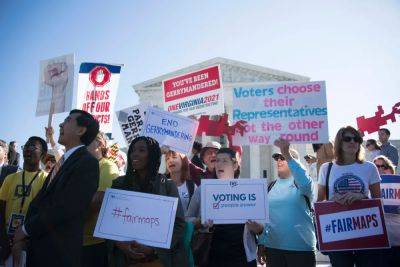Wisconsin’s extreme gerrymandering era ends as new maps come into force
For more than a decade, an anti-democratic reality has loomed over Wisconsin: elections for the state legislature don’t matter.
Since 2012, no matter how voters throughout one of America’s most competitive states cast their ballots, Republicans have been guaranteed to hold control of the state legislature. That’s because for more than a decade Republicans drew districts lines that are so distorted in their favor, they cemented their control. The dominance was underscored in 2022 when Tony Evers, a Democrat, won re-election with 51.2% of the vote. Republicans still held 65% of the seats in the 99-person state assembly.
As of 19 February, that era is over.
In a 4-3 decision in December, the Wisconsin supreme court struck down the state legislative maps, ruling that the many non-contiguous districts in the plan violated a state constitutional requirement for contiguity. It invited the legislature, governor and various other parties to submit proposals for a new map and warned it would draw its own if lawmakers and the governor could not agree on a plan.
Last week, after a lot of wrangling, the Republican-led legislature passed new maps that were drawn by Evers. The new plan dramatically reshapes politics in Wisconsin, giving Democrats a chance to win control of the assembly this year. They could also possibly win control of the state senate in 2026, giving them complete control of state government. (State senate districts in Wisconsin are composed of three assembly districts).
“In its simplest form it means we don’t know which party is gonna control the state assembly after the November election. That hasn’t been true for over a decade,” said John Johnson, a research fellow at Marquette law school in Milwaukee, who has closely







